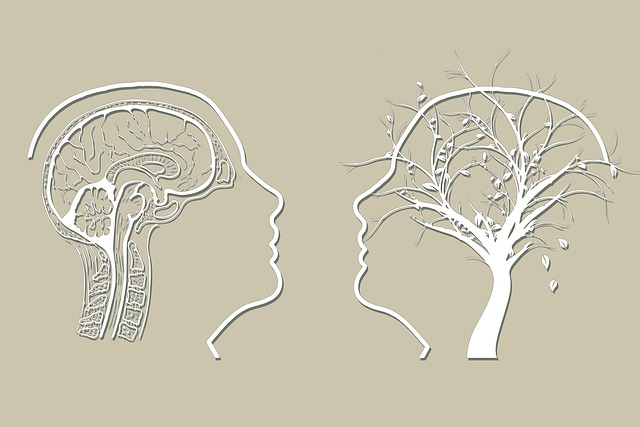Children experiencing stress due to gender identity issues may exhibit behavioral changes such as irritability, concentration difficulties, bedwetting, physical complaints, and social withdrawal. Early intervention through tailored therapy, including gender identity-specific support, is crucial for effective management. Mental health professionals emphasize risk management planning, depression prevention strategies, and cultural competency training for healthcare providers. Evidence-based therapies like Cognitive Behavioral Therapy (CBT) and Mindfulness-Based Therapies, along with structured routines, outdoor activities, and tailored self-care practices, significantly reduce stress, enhance well-being, and promote a positive path towards self-acceptance in children exploring their gender identity.
Stress reduction methods are essential for children’s well-being, especially with unique challenges tied to gender identity. This comprehensive guide explores early signs of stress in kids, offers support strategies tailored to gender diversity, and delves into evidence-based therapies. Additionally, it provides practical tips for creating a calming environment through lifestyle changes and self-care practices, empowering parents and caregivers to effectively manage children’s stress levels. Discover how these approaches can foster resilience and promote healthy development in young individuals, with a special focus on gender identity considerations.
- Recognizing Stress in Children: Early Signs and Symptoms
- Gender Identity and Stress: Unique Challenges and Support Strategies
- Evidence-Based Therapies for Effective Stress Reduction in Kids
- Creating a Calming Environment: Lifestyle Changes and Self-Care for Children
Recognizing Stress in Children: Early Signs and Symptoms

Children, just like adults, can experience stress, and recognizing it early is crucial for their overall well-being. The signs and symptoms of stress in kids may differ from those in adults, often presenting as behavioural changes rather than explicit emotional expression. Some initial indicators include frequent irritability, difficulty concentrating, bedwetting (in younger children), and sudden changes in appetite. Children might also exhibit physical complaints such as headaches or stomachaches without any apparent medical cause. As stress intensifies, kids may withdraw from social activities, struggle with academic performance, and display aggressive behaviour.
Early intervention is key to managing these issues effectively. Therapy for Children, including gender identity-specific support, can be immensely beneficial in helping young individuals process their feelings and develop healthy coping mechanisms. Mental health professionals emphasize the importance of risk management planning, especially when addressing the unique challenges faced by LGBTQ+ youth. Depression prevention strategies, coupled with healthcare provider cultural competency training, ensure that children receive tailored care that considers their individual needs and backgrounds.
Gender Identity and Stress: Unique Challenges and Support Strategies

Understanding the unique challenges faced by individuals with diverse gender identities is crucial when discussing stress reduction. The process of discovering and expressing one’s true self can be both liberating and stressful, especially for children navigating their identity. This journey often involves complex emotions, societal pressures, and potential rejection, all of which contribute to increased stress levels. For instance, transgender youth might experience anxiety related to transitioning or fear of social stigma, impacting their mental health.
Support strategies tailored to these needs are essential for burnout prevention. Therapy for Children with Gender Identity issues plays a vital role in providing safe spaces for self-exploration and building resilience. Encouraging open communication, fostering self-care routines development for better mental health, and offering peer support networks can significantly mitigate stress. These strategies empower individuals to embrace their identities, enhance self-esteem, and promote overall well-being, ensuring a more positive path towards self-acceptance.
Evidence-Based Therapies for Effective Stress Reduction in Kids

Stress reduction is a vital aspect of mental health, especially for children navigating their emotional well-being. Evidence-based therapies have proven effective in helping kids manage stress and anxiety. One such therapy gaining recognition is Cognitive Behavioral Therapy (CBT), which focuses on identifying and changing negative thought patterns. This approach has shown promise in treating various issues, including those related to gender identity. By teaching children coping strategies, CBT equips them with the tools to confront stressors and foster resilience.
Additionally, Mindfulness-Based Therapies have emerged as a powerful tool for stress reduction in youth. These therapies emphasize present-moment awareness and non-judgmental acceptance of thoughts and feelings. Incorporating mindfulness practices into daily routines can significantly enhance children’s ability to manage stress. Moreover, integrating communication strategies tailored to their age and stage of development ensures that therapy remains accessible and engaging for kids.
Creating a Calming Environment: Lifestyle Changes and Self-Care for Children

Creating a soothing environment is essential for children’s well-being and mental health. This involves incorporating simple yet effective lifestyle changes that promote calmness and reduce stress. For instance, establishing a structured routine can provide a sense of security and predictability, helping kids manage their emotions. Regular bedtimes, designated play and study times, and consistent mealtimes create a stable framework that supports self-regulation. Additionally, fostering a love for nature through outdoor activities allows children to connect with the calming rhythms of the natural world, offering an effective anxiety relief mechanism.
Self-care practices tailored for children also play a vital role in stress reduction. Encouraging them to engage in creative outlets like art, music, or writing can serve as powerful therapy for children exploring their gender identity and emotions. Self-awareness exercises, such as mindful breathing techniques or journaling, teach kids how to recognize and manage their feelings effectively. Crisis intervention guidance can be incorporated into these practices, helping children develop coping strategies for stressful situations while promoting overall mental resilience.
Stress reduction is a multifaceted approach, especially for children navigating their emotions and identity. By recognizing early signs of stress in kids, understanding the unique challenges faced by those exploring gender identity, and employing evidence-based therapies, parents and caregivers can create a calming environment. Incorporating lifestyle changes and self-care practices tailored to each child’s needs is vital. Through these strategies, we can foster resilience and support healthy development, ensuring children feel empowered and equipped to manage stress effectively as they grow.














